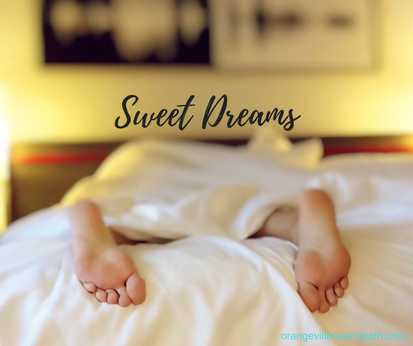7 Sleep Secrets
1. Darkness
Not so hard to accomplish in the fall, but we need our bodies to register darkness in order for the Pineal gland to release Melatonin, our sleep hormone. For shift workers, black out blinds are imperative in order for the body to reach as close to a normal 'night-time' environment as possible. As important as it is to be exposed to darkness, it's equally imperative to find the contrast and be exposed to light during the waking hours. If you have trouble finding sunlight in the winter, I recommend full spectrum lightbulbs or sun lamps for your daytime workspace in order to complete the light-dark cycle.
2. Electronics
Electronics can interrupt sleep patterns in two ways: they keep our brains stimulated, and they also emit a type of blue light that interferes with the release of melatonin. Some people find TV before bed relaxing, but if you are having trouble sleeping it might be worth experimenting without it. I suggest avoiding electronics for an hour before bed, especially phones and iPads. I also prefer regular alarm clocks over keeping your phone in your room, as we're still unclear on the full effects of EMFs (electro magnetic fields) but it's still thought that less exposure is better.
3. Clear your mind
It's very common to be tired but unable to fall asleep as thoughts from your day start to surface just when you're ready to get to bed. Or, you fall asleep but wake up in the middle of the night wide awake and thinking. By taking a few minutes to acknowledge or organize these thoughts we can save ourselves frustration through the night. A lot of my patients have really enjoyed the Apps Headspace or Calm in order to do a little mental relaxation during or at the end of the day so that these thoughts don't surface at bedtime. Some other ideas are journaling or making to-do lists, basically any activity that gets the thoughts out of your head.
4. Exercise during the day
When it comes to sleep there are two great reasons to exercise during the day. The first is that most of us have mentally demanding jobs, but our muscles have not been challenged in any way. We sleep better when there's a component of physical exhaustion in the mix. Also, if you do exercise but it's close to bedtime, the stimulation could be keeping you awake and you could try moving your workout to before dinner or first thing in the morning so it doesn't interfere with your natural sleep cues.
5. Have a snack
One major sign that your body isn't controlling your blood sugar levels properly is if you wake up consistently between 1-3am. This can be from a blood sugar drop, and can easily be rectified with a high protein and fat snack at 9pm. A handful of raw pumpkin seeds works perfectly for this purpose, and is worthwhile to try if you find yourself down this road.
6. Comfort and soothe
There's something about a cozy environment that welcomes sleep and makes you want to go to bed. Comfortable sheets, a few drops of lavender oil, an epsom salt bath, and finding the right temperature can soothe your body into welcoming sleep. I find that some people who experience insomnia really dread nighttime, because they anticipate the frustration that comes when they can't fall asleep. If you enjoy the ritual of getting ready for bed, you can help to break those negative associations.
7. Consider support
When the first 6 suggestions aren't cutting it, we need to look at other sleep solutions to help encourage a positive sleep cycle. It's not one size fits all, because the reasons behind a poor sleep pattern are different. Some of my favourite helpers are: Relora, Melatonin, Magnesium, 5-HTP, GABA, Skullcap, and Passionflower. My reasoning behind each depends on the person so it's best to discuss your situation individually.
A special note about Menopause.
One of the reasons that menopause is so challenging for some women is because of disrupted sleep. I find that when we can lessen the frequency and severity of hot flashes, or anxiety if it's present, sleep patterns return and women feel much, much better. Let me know if you'd like to chat about that.
No matter the reasons behind poor sleep habits, it's important to keep trying new solutions and get to the bottom of it. Sleep is a key foundation piece to true wellness, and your body wants to be well.
Sweet dreams,
Dr. Christa

 RSS Feed
RSS Feed